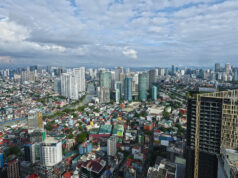PRESIDENT Rodrigo R. Duterte has signed Executive Order (EO) No. 31 creating a “specialized” body within the Department of Finance (DoF) tasked to give strategic advice, economic policy research, and management of the department’s reforms.
Signed by Mr. Duterte on June 28, EO 31 directs the formation of the Strategy, Economics, and Results Group (SERG), which will be under the control of the Secretary of Finance.
The newly-organized group is also coterminous with the tenure of the DoF Secretary under the Duterte administration.
“There is a need to create a specialized group in the DoF to provide strategic advice, economic policy research, and reform management and coordination, including reform coalition building, in the area of fiscal policy to support the priority reforms under the 0+10-Point Socioeconomic Agenda of the national government,” the EO read in part.
According to the new EO, the SERG is composed of Strategy and Results Office (SRO) and Fiscal Economics Research Office (FERO), each headed by a Director IV.
The SRO is mandated to develop strategy and plans to convert priority socioeconomic agenda items into executive and legislative action “from a fiscal perspective” as well as provide fiscal policy advice and inputs to the DoF, the EO said.
It will likewise manage an up-to-date fiscal economic data bank, prepare implementation plans and build fiscal reform coalitions in support of the government’s priority programs, it added.
Meanwhile, the FERO is in charge of research and analysis, simulation, and monitoring of priority programs, EO 31 stated.
It will also initiate and participate in the discussions and collaboration with development partners and other stakeholders.
Mr. Duterte’s economic team unveiled a 10-point socioeconomic agenda just days after he won election on May 9, reassuring investors by signaling continuity from the economic policies of his predecessor that had won for the country investment-grade credit ratings in 2013.
The economic blueprint aims to achieve more inclusive growth by relaxing foreign ownership limits, lowering personal and corporate income taxes, and improving the ease of doing business in the country, among others. — Ian Nicolas P. Cigaral



